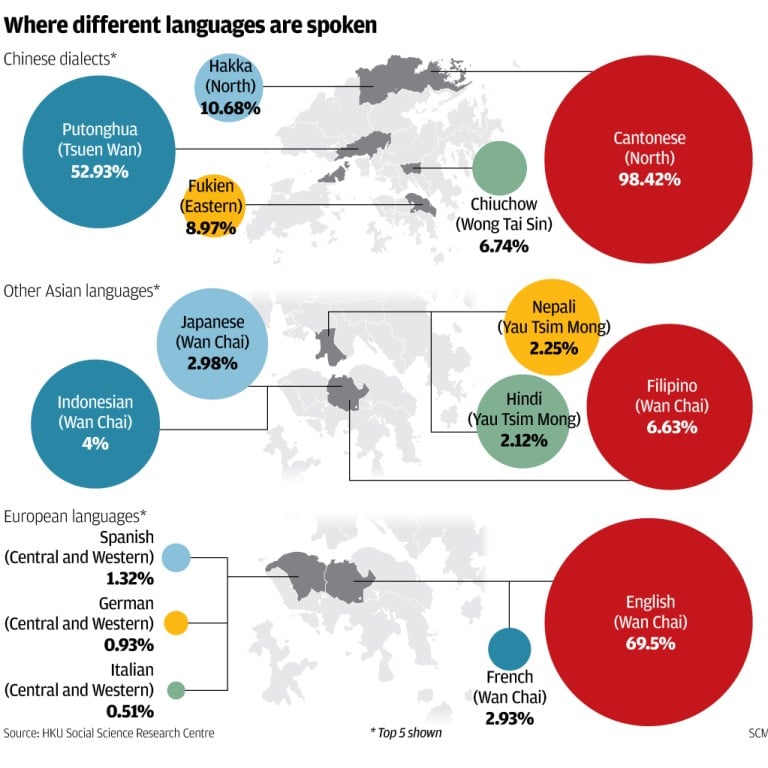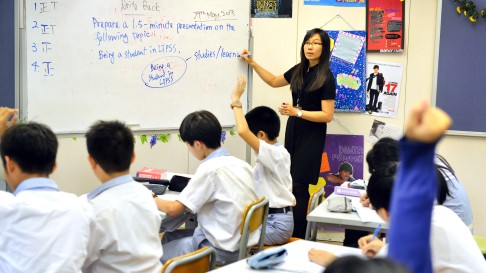
How many languages can you speak? 90pc of Hong Kong under 30s speak Cantonese, Putonghua and English
Over 90pc of Hongkongers under 30 have some proficiency in Putonghua and English, survey finds, but standards in the latter still lag behind

This compares to the 2011 census, which found only about 70 per cent in the same age group could speak the two languages.
The increasing use of Putonghua has also raised concerns, as almost half of the survey respondents believed Cantonese had been at least moderately threatened as the city's main language.
READ MORE: INFOGRAPHIC: A world of languages - and how many speak them
Researchers believed the study showed the government's "biliterate and trilingual" policy had been effective. They said they could not see Cantonese losing its dominance unless there were deliberate policy changes.
Take our poll: How many languages can you speak fluently?
"For Hong Kong people in the 1980s, it was all about learning English, but in the 1990s it was all about Putonghua," said Professor Kingsley Bolton, one of the researchers at the University of Hong Kong's Social Sciences Research Centre. "Now we have a younger generation who are, increasingly, trilingual. The future for Hong Kong appears to be a trilingual society."
The research showed that Cantonese continued to be dominant, with almost all people in all age groups able to speak it.
The survey, commissioned by the government's Central Policy Unit, was conducted by the centre between August 2013 and January this year. Researchers interviewed 2,049 residents aged 15 and above by telephone in Cantonese, English and Putonghua.
They tested respondents' proficiency in English and Putonghua by asking them questions with different difficulty levels. In an online test, they also checked their ability to write in English and in simplified Chinese characters as used on the mainland.
The survey found that up to 93 per cent of respondents under 30 could speak Putonghua and up to 97 per cent English. But only 27 per cent could speak English at least "quite well", compared with 68 per cent for Putonghua.
About 24 per cent could write English at least "quite well", compared with 30 per cent for simplified Chinese characters.
Researchers said as Hongkongers increasingly needed to use oral and written English and Putonghua and simplified Chinese at work, the government should consider how "high-level proficiency in both oral and written English and simplified written Chinese might be more effectively promoted through Hong Kong's education system".
But Civic Party lawmaker Claudia Mo Man-ching said there was no need to brush up on simplified Chinese as anyone who knew "proper Chinese would not have too much problem with the mainland version".
She said English could be seen as "not in line with the development of Chinese as desired by Beijing", which could partly explain falling English standards.
The study showed that 45 per cent of the respondents believed Cantonese was at least "moderately" threatened by Putonghua as the main language. About 83 per cent also said it would not be acceptable if the next chief executive spoke Putonghua instead of Cantonese.


